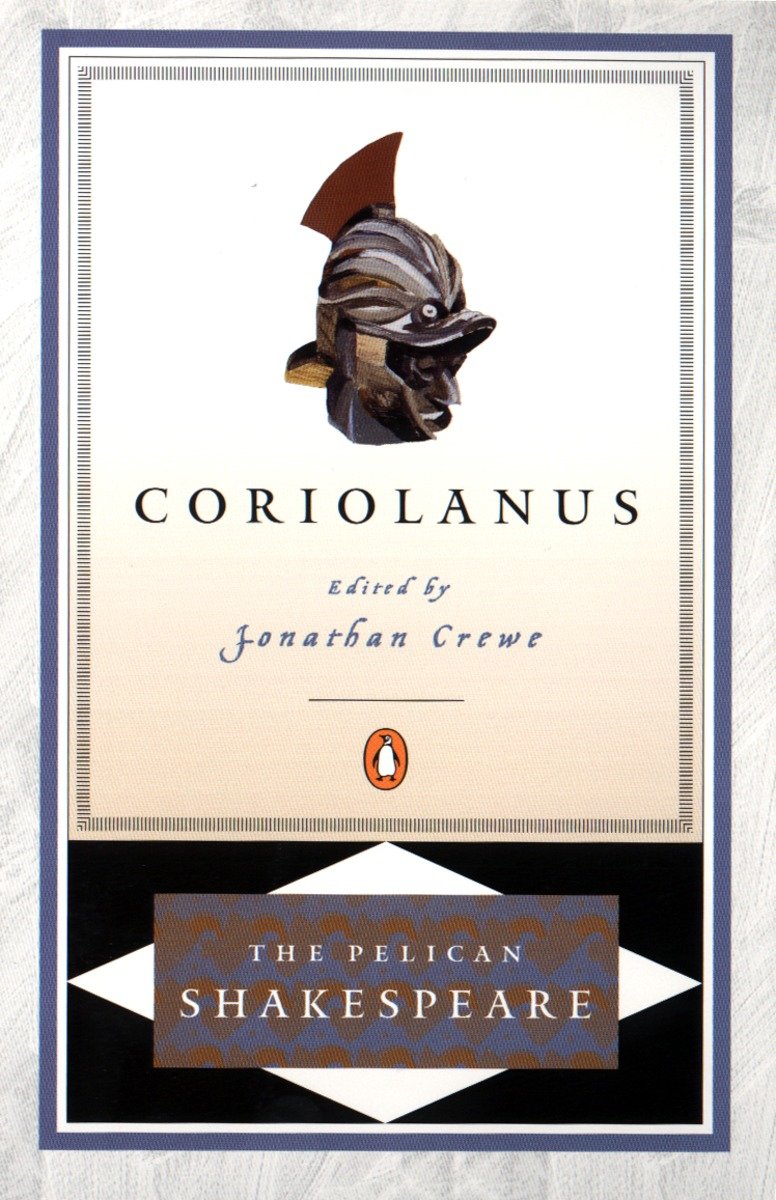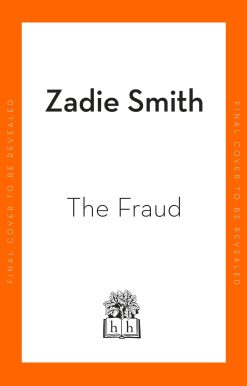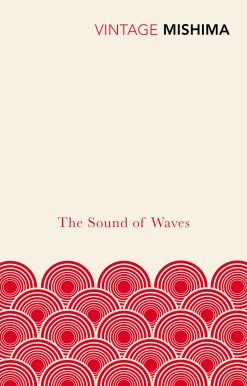No gift registry found click here to create new registry
Cart contain Gift Registry Items cannot add products
Coriolanus
7.00 JOD
Please allow 2 – 5 weeks for delivery of this item
Add to Gift RegistryDescription
The acclaimed Pelican Shakespeare series edited by A. R. Braunmuller and Stephen Orgel The legendary Pelican Shakespeare series features authoritative and meticulously researched texts paired with scholarship by renowned Shakespeareans. Each book includes an essay on the theatrical world of Shakespeare’s time, an introduction to the individual play, and a detailed note on the text used. Updated by general editors Stephen Orgel and A. R. Braunmuller, these easy-to-read editions incorporate over thirty years of Shakespeare scholarship undertaken since the original series, edited by Alfred Harbage, appeared between 1956 and 1967. With definitive texts and illuminating essays, the Pelican Shakespeare will remain a valued resource for students, teachers, and theater professionals for many years to come. For more than seventy years, Penguin has been the leading publisher of classic literature in the English-speaking world. With more than 1,700 titles, Penguin Classics represents a global bookshelf of the best works throughout history and across genres and disciplines. Readers trust the series to provide authoritative texts enhanced by introductions and notes by distinguished scholars and contemporary authors, as well as up-to-date translations by award-winning translators.
Additional information
| Weight | 0.16 kg |
|---|---|
| Dimensions | 1.02 × 12.96 × 19.82 cm |
| PubliCanadanadation City/Country | USA |
| Author(s) | A. R. Braunmuller, Jonathan Crewe, Stephen Orgel, William Shakespeare |
| Format | |
| language1 | |
| Pages | 192 |
| Publisher | |
| Year Published | 1999-9-1 |
| Imprint | |
| ISBN 10 | 0140714731 |
| About The Author | William Shakespeare was born in Stratford-upon-Avon in April, 1564, and his birth is traditionally celebrated on April 23. The facts of his life, known from surviving documents, are sparse. He died on April 23, 1616, and was buried in Holy Trinity Church, Stratford. A. R. Braunmuller is Distinguished Professor of English and Comparative Literature at the University of California at Los Angeles. He has written critical volumes on George Peele and George Chapman and has edited plays in both the Oxford (King John) and Cambridge (Macbeth) series of Shakespeare editions. He is also general editor of The New Cambridge Shakespeare. Stephen Orgel is the Jackson Eli Reynolds Professor of the Humanities at Stanford University and general editor of the Cambridge Studies in Renaissance Literature and Culture. His books include Imagining Shakespeare, The Authentic Shakespeare, Impersonations: The Performance of Gender in Shakespeare’s England and The Illusion of Power. |
“A remarkable edition, one that makes Shakespeare’s extraordinary accomplishment more vivid than ever.”—James Shapiro, professor, Columbia University, bestselling author of A Year in the Life of Shakespeare: 1599 “A feast of literary and historical information.”—The Wall Street Journal |
|
| Excerpt From Book | Act 1 Scene 1 running scene 1Enter a company of mutinous Citizens, with staves, clubs and other weaponsFIRST CITIZEN Before we proceed any further, hear me speak.ALL Speak, speak.FIRST CITIZEN You are all resolved rather to die than to famish?ALL Resolved, resolved.FIRST CITIZEN First, you know Caius Martius is chief enemy to the people.ALL We know't, we know't.FIRST CITIZEN Let us kill him, and we'll have corn at our own price. Is't a verdict?ALL No more talking on't: let it be done: away, away.SECOND CITIZEN One word, good citizens.FIRST CITIZEN We are accounted poor citizens, the patricians good: what authority surfeits on would relieve us. If they would yield us but the superfluity while it were wholesome, we might guess they relieved us humanely: but they think we are too dear: the leanness that afflicts us, the object of our misery, is as an inventory to particularize their abundance: our sufferance is a gain to them. Let us revenge this with our pikes, ere we become rakes. For the gods know, I speak this in hunger for bread, not in thirst for revenge.SECOND CITIZEN Would you proceed especially against Caius Martius?ALL Against him first: he's a very dog to the commonalty.SECOND CITIZEN Consider you what services he has done for his country?FIRST CITIZEN Very well, and could be content to give him good report for't, but that he pays himself with being proud.ALL Nay, but speak not maliciously.FIRST CITIZEN I say unto you, what he hath done famously, he did it to that end: though soft-conscienced men can be content to say it was for his country, he did it to please his mother and to be partly proud, which he is, even to the altitude of his virtue.SECOND CITIZEN What he cannot help in his nature, you account a vice in him. You must in no way say he is covetous.FIRST CITIZEN If I must not, I need not be barren of accusations: he hath faults, with surplus, to tire in repetition.Shouts withinWhat shouts are these? The other side o'th'city is risen: why stay we prating here? To th'Capitol!ALL Come, come.FIRST CITIZEN Soft, who comes here?Enter Menenius AgrippaSECOND CITIZEN Worthy Menenius Agrippa, one that hath always loved the people.FIRST CITIZEN He's one honest enough: would all the rest were so!MENENIUS What work's, my countrymen, in hand? Where go youWith bats and clubs? The matter, speak, I pray you.SECOND CITIZEN Our business is not unknown to th'senate: they have had inkling this fortnight what we intend to do, which now we'll show 'em in deeds. They say poor suitors have strong breaths: they shall know we have strong arms too.MENENIUS Why, masters, my good friends, mine honest neighbours,Will you undo yourselves?SECOND CITIZEN We cannot, sir, we are undone already.MENENIUS I tell you, friends, most charitable careHave the patricians of you. For your wants,Your suffering in this dearth, you may as wellStrike at the heaven with your staves as lift themAgainst the Roman state, whose course will onThe way it takes, cracking ten thousand curbsOf more strong link asunder than can everAppear in your impediment. For the dearth,The gods, not the patricians, make it, andYour knees to them, not arms, must help. Alack,You are transported by calamityThither where more attends you, and you slanderThe helms o'th'state, who care for you like fathers,When you curse them as enemies.SECOND CITIZEN Care for us? True, indeed, they ne'er cared for us yet. Suffer us to famish, and their store-houses crammed with grain: make edicts for usury, to support usurers: repeal daily any wholesome act established against the rich, and provide more piercing statutes daily, to chain up and restrain the poor. If the wars eat us not up, they will: and there's all the love they bear us.MENENIUS Either you mustConfess yourselves wondrous malicious,Or be accused of folly. I shall tell youA pretty tale: it may be you have heard it,But since it serves my purpose, I will ventureTo stale't a little more.SECOND CITIZEN Well, I'll hear it, sir: yet you must not think to fob off our disgrace with a tale: but, an't please you, deliver.MENENIUS There was a time when all the body's membersRebelled against the belly, thus accused it:That only like a gulf it did remainI'th'midst o'th'body, idle and unactive,Still cupboarding the viand, never bearingLike labour with the rest, where th'other instrumentsDid see and hear, devise, instruct, walk, feel,And, mutually participate, did ministerUnto the appetite and affection commonOf the whole body. The belly answered-SECOND CITIZEN Well, sir, what answer made the belly?MENENIUS Sir, I shall tell you: with a kind of smile,Which ne'er came from the lungs, but even thus -For look you, I may make the belly smileAs well as speak – it tauntingly repliedTo th'discontented members, the mutinous partsThat envied his receipt: even so most fitlyAs you malign our senators for thatThey are not such as you.SECOND CITIZEN Your belly's answer: what?The kingly crownèd head, the vigilant eye,The counsellor heart, the arm our soldier,Our steed the leg, the tongue our trumpeter,With other muniments and petty helpsIn this our fabric, if that they-MENENIUS What then?Fore me, this fellow speaks! What then? What then?SECOND CITIZEN Should by the cormorant belly be restrained,Who is the sink o'th'body-MENENIUS Well, what then?SECOND CITIZEN The former agents, if they did complain,What could the belly answer?MENENIUS I will tell you,If you'll bestow a small – of what you have little -Patience awhile, you'st hear the belly's answer.SECOND CITIZEN You're long about it.MENENIUS Note me this, good friend:Your most grave belly was deliberate,Not rash like his accusers, and thus answered:'True is it, my incorporate friends,' quoth he,'That I receive the general food at firstWhich you do live upon: and fit it is,Because I am the storehouse and the shopOf the whole body. But, if you do remember,I send it through the rivers of your bloodEven to the court, the heart, to th'seat o'th'brain,And through the cranks and offices of man,The strongest nerves and small inferior veinsFrom me receive that natural competencyWhereby they live. And though that all at once' -You, my good friends, this says the belly, mark me-SECOND CITIZEN Ay, sir, well, well.MENENIUS 'Though all at once cannotSee what I do deliver out to each,Yet I can make my audit up, that allFrom me do back receive the flour of all,And leave me but the bran.' What say you to't?SECOND CITIZEN It was an answer: how apply you this?MENENIUS The senators of Rome are this good belly,And you the mutinous members: for examineTheir counsels and their cares, digest things rightlyTouching the weal o'th'common, you shall findNo public benefit which you receiveBut it proceeds or comes from them to youAnd no way from yourselves. What do you think,You, the great toe of this assembly?SECOND CITIZEN I the great toe? Why the great toe?MENENIUS For that, being one o'th'lowest, basest, poorestOf this most wise rebellion, thou goest foremost:Thou rascal, that art worst in blood to run,Lead'st first to win some vantage.But make you ready your stiff bats and clubs:Rome and her rats are at the point of battle:The one side must have bale.Enter Caius MartiusHail, noble Martius.MARTIUS Thanks. What's the matter, you dissentious rogues,That, rubbing the poor itch of your opinion,Make yourselves scabs?SECOND CITIZEN We have ever your good word.MARTIUS He that will give good words to thee will flatterBeneath abhorring. What would you have, you curs,That like nor peace nor war? The one affrights you,The other makes you proud. He that trusts to you,Where he should find you lions, finds you hares:Where foxes, geese: you are no surer, no,Than is the coal of fire upon the ice,Or hailstone in the sun. Your virtue isTo make him worthy whose offence subdues himAnd curse that justice did it. Who deserves greatnessDeserves your hate, and your affections areA sick man's appetite, who desires most thatWhich would increase his evil. He that dependsUpon your favours swims with fins of lead,And hews down oaks with rushes. Hang ye! Trust ye?With every minute you do change a mind,And call him noble that was now your hate,Him vile that was your garland. What's the matter,That in these several places of the cityYou cry against the noble senate, who,Under the gods, keep you in awe, which elseWould feed on one another?- What's their To Meneniusseeking?MENENIUS For corn at their own rates, whereof they sayThe city is well stored.MARTIUS Hang 'em! They say?They'll sit by th'fire, and presume to knowWhat's done i'th'Capitol: who's like to rise,Who thrives and who declines: side factions and give outConjectural marriages, making parties strongAnd feebling such as stand not in their likingBelow their cobbled shoes. They say there's grain enough?Would the nobility lay aside their ruth,And let me use my sword, I'd make a quarryWith thousands of these quartered slaves, as highAs I could pick my lance.MENENIUS Nay, these are almost thoroughly persuaded:For though abundantly they lack discretion,Yet are they passing cowardly. But I beseech you,What says the other troop?MARTIUS They are dissolved: hang 'em:They said they were an-hungry, sighed forth proverbsThat hunger broke stone walls, that dogs must eat,That meat was made for mouths, that the gods sent notCorn for the rich men only: with these shredsThey vented their complainings, which being answered,And a petition granted them, a strange one -To break the heart of generosity,And make bold power look pale – they threw their capsAs they would hang them on the horns o'th'moon,Shouting their emulation.MENENIUS What is granted them?MARTIUS Five tribunes to defend their vulgar wisdoms,Of their own choice. One's Junius Brutus,Sicinius Velutus, and I know not. 'Sdeath,The rabble should have first unroofed the city,Ere so prevailed with me: it will in timeWin upon power and throw forth greater themesFor insurrection's arguing.MENENIUS This is strange.MARTIUS Go get you home, you fragments. To the CitizensEnter a Messenger hastilyMESSENGER Where's Caius Martius?MARTIUS Here: what's the matter?MESSENGER The news is, sir, the Volsces are in arms.MARTIUS I am glad on't: then we shall ha' means to ventOur musty superfluity. See, our best elders.Enter Sicinius Velutus, Junius Brutus, Cominius, Titus Lartius, with other SenatorsFIRST SENATOR Martius, 'tis true that you have lately told us:The Volsces are in arms.MARTIUS They have a leader,Tullus Aufidius, that will put you to't:I sin in envying his nobility,And were I anything but what I am,I would wish me only he.COMINIUS You have fought together!MARTIUS Were half to half the world by th'ears and heUpon my party, I'd revolt to makeOnly my wars with him. He is a lionThat I am proud to hunt.FIRST SENATOR Then, worthy Martius,Attend upon Cominius to these wars.COMINIUS It is your former promise. To MartiusMARTIUS Sir, it is,And I am constant: Titus Lartius, thouShalt see me once more strike at Tullus' face.What, art thou stiff? Stand'st out?LARTIUS No, Caius Martius,I'll lean upon one crutch and fight with t'other,Ere stay behind this business.MENENIUS O, true-bred!FIRST SENATOR Your company to th'Capitol, where I knowOur greatest friends attend us.LARTIUS Lead you on.- To CominiusFollow Cominius, we must follow you, To MartiusRight worthy your priority.COMINIUS Noble Martius.FIRST SENATOR Hence to your homes, be gone. To the CitizensMARTIUS Nay, let them follow:The Volsces have much corn: take these rats thitherTo gnaw their garners. Worshipful mutineers,Your valour puts well forth: pray follow. ExeuntCitizens steal away. Sicinius and Brutus remainSICINIUS Was ever man so proud as is this Martius?BRUTUS He has no equal.SICINIUS When we were chosen tribunes for the people-BRUTUS Marked you his lip and eyes?SICINIUS Nay, but his taunts.BRUTUS Being moved, he will not spare to gird the gods.SICINIUS Bemock the modest moon.BRUTUS The present wars devour him: he is grownToo proud to be so valiant.SICINIUS Such a nature,Tickled with good success, disdains the shadowWhich he treads on at noon: but I do wonderHis insolence can brook to be commandedUnder Cominius.BRUTUS Fame, at the which he aims,In whom already he's well graced, cannotBetter be held nor more attained than byA place below the first: for what miscarriesShall be the general's fault, though he performTo th'utmost of a man, and giddy censureWill then cry out of Martius 'O, if heHad borne the business!'SICINIUS Besides, if things go well,Opinion that so sticks on Martius shallOf his demerits rob Cominius.BRUTUS Come:Half all Cominius' honours are to Martius,Though Martius earned them not: and all his faultsTo Martius shall be honours, though indeedIn aught he merit not.SICINIUS Let's hence, and hearHow the dispatch is made, and in what fashion,More than his singularity, he goesUpon this present action.BRUTUS Let's along. Exeunt[Act 1 Scene 2] running scene 2Enter Tullus Aufidius with Senators of CoriolesFIRST SENATOR So, your opinion is, Aufidius,That they of Rome are entered in our counselsAnd know how we proceed.AUFIDIUS Is it not yours?Whatever have been thought on in this state,That could be brought to bodily act ere RomeHad circumvention? 'Tis not four days goneSince I heard thence: these are the words: I thinkI have the letter here: yes, here it is. He reads the letter'They have pressed a power, but it is not knownWhether for east or west: the dearth is great,The people mutinous: and it is rumoured,Cominius, Martius your old enemy,Who is of Rome worse hated than of you,And Titus Lartius, a most valiant Roman,These three lead on this preparationWhither 'tis bent: most likely 'tis for you:Consider of it.' |
| series |
Only logged in customers who have purchased this product may leave a review.
Related products
-
On backorder 2-5 Weeks to Arrive
Add to Gift Registry20.00 JOD -
On backorder 2-5 Weeks to Arrive
Add to Gift Registry9.99 JOD -
On backorder 2-5 Weeks to Arrive
Add to Gift Registry15.99 JOD -
On backorder 2-5 Weeks to Arrive
Add to Gift Registry9.99 JOD






Reviews
There are no reviews yet.